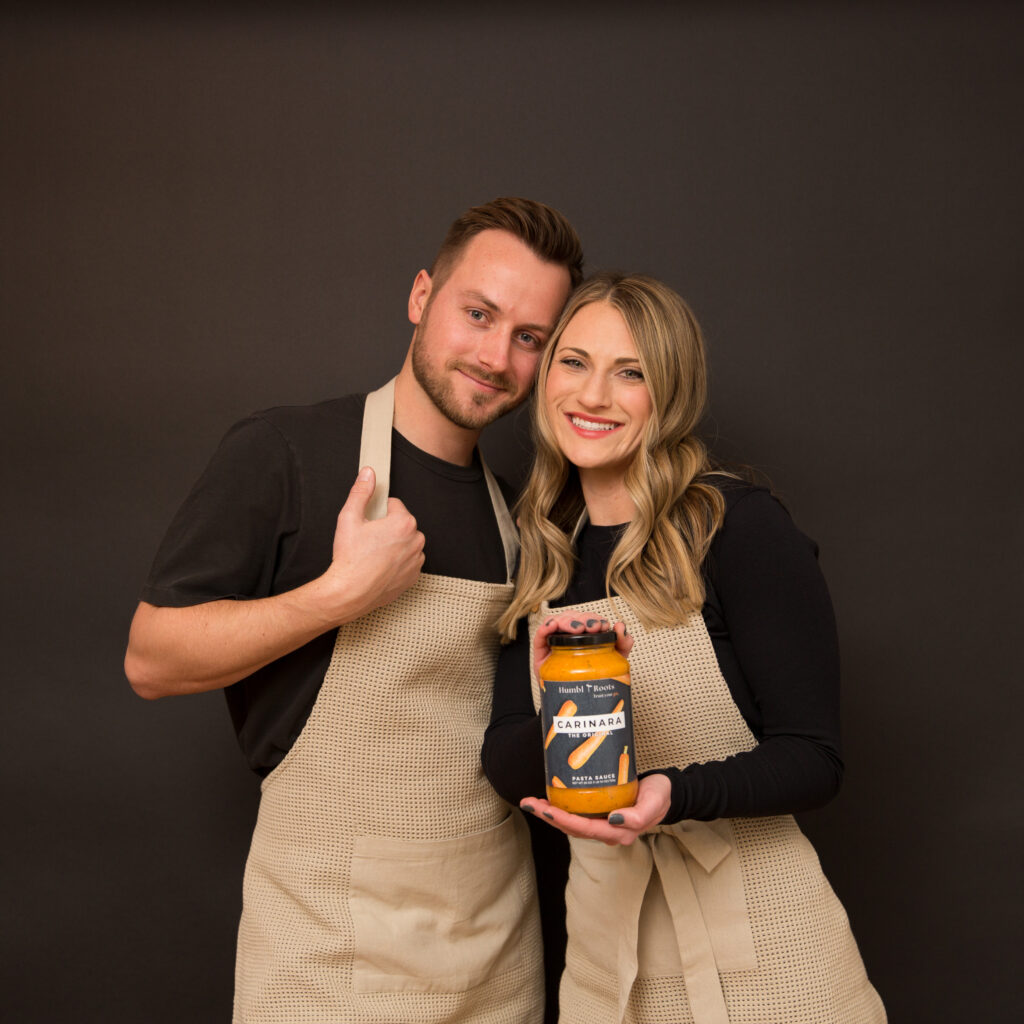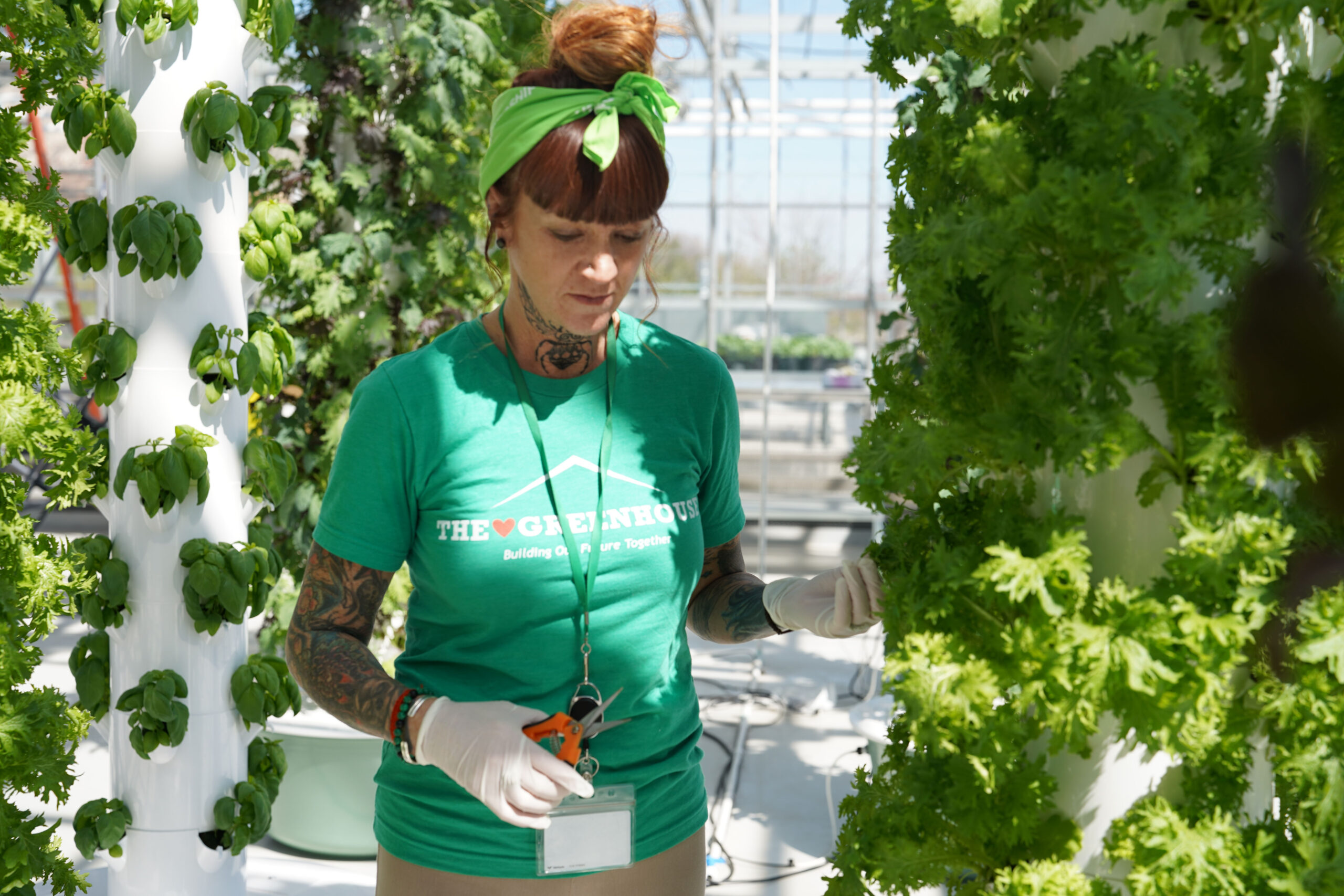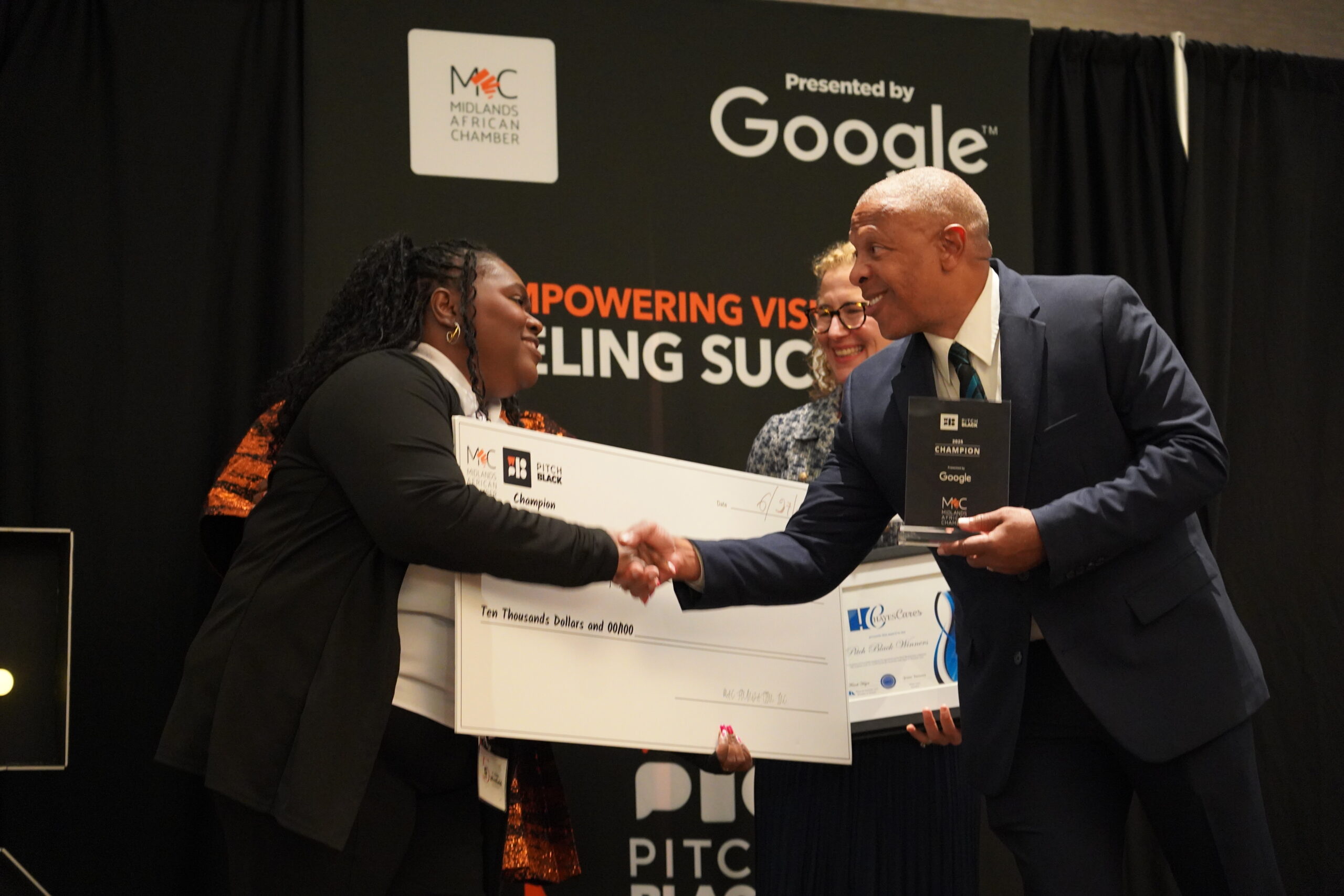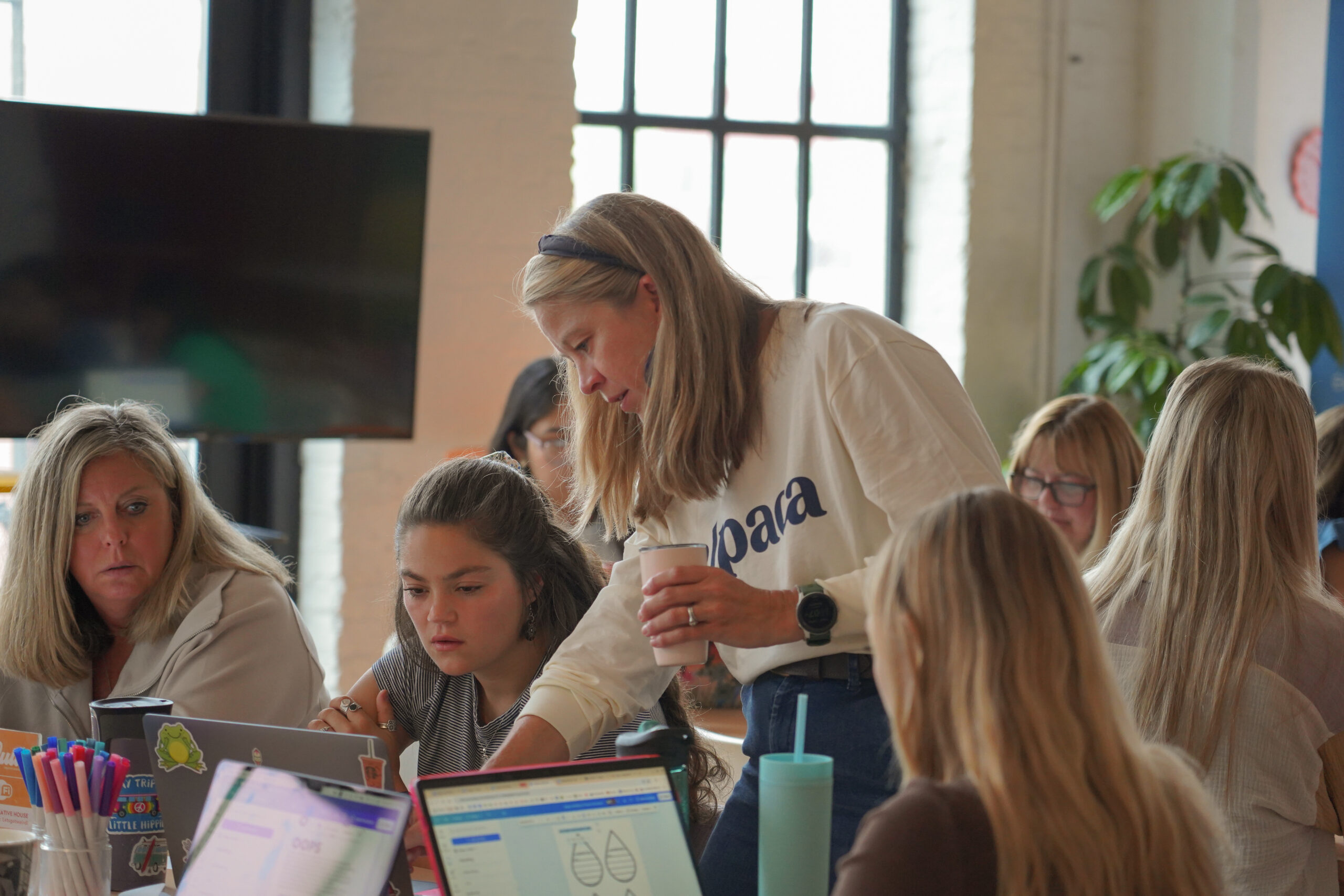Patrick Sanders, Jr., described his egg roll business, The Eggroll Fix, as a “pandemic baby” because he discovered his passion for cooking during the COVID-19 pandemic. “It was a release for me, and it brought my family together.”
Sanders is a member of the No More Empty Pots inaugural Kauffman FastTrac cohort — a free, 16-week program that provides early stage food entrepreneurs with curriculum on business planning, financing and permitting.
Inspiration for other burgeoning entrepreneurs in the class ranged from watching TikTok videos of recipes and believing they could do the same with a micro bakery, to a desire to share the cultural dishes of their Venezuelan heritage through a food trailer.
Like other startup founders, food entrepreneurs look for ways to address market needs and solve problems not answered by larger, established companies. A growing list of local resources are available in Nebraska to help food-based founders navigate the common challenges of starting a new business, while considering an additional set of circumstances specific to starting a food business.
Finding a market niche and a support network
The Kauffman FastTrac program is one of several initiatives led by Omaha nonprofit No More Empty Pots to support aspiring food business owners. Other forms of support include commercial kitchen rental space and help with sourcing local ingredients.
Resource providers continue to hone the type of support offered in response to evolving market preferences, shifts in regulation and new food trends.
“It used to be that almost everybody was coming [to our program] because they wanted to work the restaurant channel — own a restaurant, own a bakery, stuff like that,” said Brian O’Malley, Metropolitan Community College associate dean of culinary, hospitality and horticulture. “Now we’re seeing people with all different sorts of dreams.”
With recent updates to the Nebraska cottage food law, home kitchens can be the launchpad for prospective entrepreneurs exploring the marketability of their baked and crafted goods.
O’Malley said recently he’s seen students working side hustles from their home kitchens and a growing interest in areas outside classic culinary career routes. These include making consumer packaged foods or becoming a “private, Airbnb-style chef.” He said the 21st century has introduced new possibilities, and problems, to tackle. For example, how to maintain freshness and quality of meals when more and more restaurants offer long-distance deliveries through app partners?

Jeni Ellick is the founder and CEO of Artisan Row, a food product development and innovation consulting agency. Working with pre-revenue to mid-size brands, she said she’s seen new businesses in regenerative agriculture, grass-fed proteins and authentic global flavors. Ellick said other trends she’s observed include more women founders addressing the needs of women consumers and their families.
Similar to entrepreneurs in other industries, Ellick said the key to success for a new food company is expanding focus beyond just how to differentiate the business from its competitors. And instead asking, “What problem am I actually solving, and is it a real problem or not?”
Artisan Row often collaborates with the Council Bluffs-based nonprofit Kitchen Council to offer workshops and office hours. Kitchen Council provides food entrepreneurs with commercial kitchen space, equipment and storage, plus mentoring and networking opportunities.
No More Empty Pots Relationship Coordinator Makayla Stubbs said that entrepreneurs need to be mindful of the ebb and flow of the food industry, and the importance of remaining flexible.
“It’s always changing,” said Stubbs. “If you see that it’s not working for you financially, or in the market, or with your own personal life,” she advised to “Stop. Pivot. Reassess, and then go from there.”
Challenges with the opportunities
“Starting a business and being an entrepreneur — especially in the food business — is a lot of work,” said Stubbs. “It’s a lot of money and it’s a lot more than just making food for your family and friends.”
Stubbs said she’s noticed common difficulties faced by cohort members through her time leading classes for the Kauffman FastTrac program. She cited calculating the real financial cost of running a food business, and the various permits needed to work with different types of goods.

Ellick noted that finding funding options, navigating the complexities of the supply chain and retailer network, and scaling manufacturing to meet customer demands as common challenges she’s seen working with food entrepreneurs.
Organizations like No More Empty Pots and Kitchen Council help entrepreneurs through these roadblocks. But as more startups seek to scale and utilize these resources, leadership behind both nonprofits say they face pressures and limitations on their communal spaces and equipment.
Stubbs said there is simply a lack of usable commercial kitchens in Omaha, leading to No More Empty Pots trying to optimize its kitchen time for renters. She said there are opportunities, though, for more commissary kitchens or “ghost kitchens” in the region if locations are willing to offer them.
Ellick said not all entrepreneurs have to build for an expansive consumer base. “I think you can build a meaningful food business more localized.”
Creating a recipe for success
Jake Burklund is the co-founder of the Omaha food startup Humbl Roots, which started with a carrot-based pasta sauce, Carinara, as its flagship product.
The idea for Carinara came to Burklund and his wife, and co-founder, Jacque Burklund, when they both started to develop food sensitivities. They realized there wasn’t any pasta sauce on the market made without tomatoes, which was a source of heartburn for the pair, and others they know.
Encouraged by her husband and the local startup community, Jacque went to work creating their signature recipe. Through trial and error and offering samples to friends, family and coworkers to try, she crafted a recipe the duo felt confident in.
Jake said they quickly realized the additional permits and FDA requirements they needed to obtain before selling to consumers at a farmers market. With no background in the food industry, the two turned to Google searches and state resources like the Food Innovation Center on the Nebraska Innovation Campus for help.

The Burklunds eventually discovered Kitchen Council through their research, started operations there and completed the necessary cooking and packaging requirements to begin selling. The product was available for purchase in 2023.
“[Holly Benson Muller at Kitchen Council] was just kind and took a shot on us,” said Jake. “If they weren’t around, we probably wouldn’t have started Carinara.”
Through learning the industry, networking with groups like Artisan Row and winning the pitch competition at the 2024 Hy-Vee OpportUNITY Inclusive Business Summit, Carinara is now available in more than 100 Hy-Vee stores. Now, the goal is to expand into additional retailers and regions, and explore manufacturing options to better fit their changing needs.
Finding a community
“Starting something from nothing is probably one of the hardest things there is. It’s extremely difficult, [and] it’s a lonely path,” said Jake.
“There’s been countless times where we’ve gone to the [startup] community, told people what we’re working on and what our biggest struggle is at that moment, and more often than not, we’ve come out of those conversations with the solution,” he added.
Sanders for the Kauffman FastTrac cohort emphasized the importance of having a support network to lean on. He said No More Empty Pots has been critical in transforming his passion into his current pop-up business. “Outside of church, this is one of the best communities I’ve ever been in,” said Sanders.
His closing advice: “Find a community.”
Connect with food entrepreneurs and resource providers at these upcoming events:
- Kitchen Council: Food Startup 101 on May 12.
- No More Empty Pots: Small Business Resource Fair on May 15.
- No More Empty Pots: Block Party on May 17.
- No More Empty Pots: Kauffman FastTrac Cohort 2 begins June 10.




